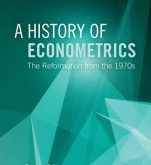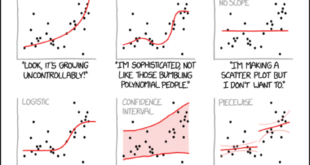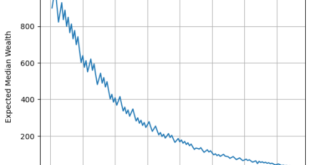My critique of RCTs Randomized Controlled Trials (RCTs), while useful in some contexts, are often overvalued in economics and social sciences. My critique centres on the following key points: 1. Lack of External Validity RCTs often suffer from problems of external validity, meaning that their results cannot easily be generalized beyond the specific experimental conditions. In the controlled environment of an RCT, many real-world factors are ignored or...
Read More »The history of econometrics
The history of econometrics There have been over four decades of econometric research on business cycles … But the significance of the formalization becomes more difficult to identify when it is assessed from the applied perspective … The wide conviction of the superiority of the methods of the science has converted the econometric community largely to a group of fundamentalist guards of mathematical rigour … So much so that the relevance of the research to...
Read More »Econometric curve fitting
As social scientists — and economists — we have to confront the all-important question of how to handle uncertainty and randomness. Should we define randomness with probability? If we do, we have to accept that to speak of randomness we also have to presuppose the existence of nomological probability machines, since probabilities cannot be spoken of — and actually, to be strict, do not at all exist — without specifying such system-contexts. Accepting Haavelmo’s domain of...
Read More »Methodological fetishism
Beyond the significant financial expenses required to conduct RCTs … critics have raised concerns about considerable opportunity costs associated with their privileged status in programme and policy assessment. These costs result from how an over-emphasis on experimental evaluations in evidence generation systematically undermines alternative research methods potentially better equipped to answer questions about causal mechanisms (or the channels by which interventions...
Read More »Random Walk (student stuff)
Random Walk (student stuff) .[embedded content]
Read More »Gambler’s ruin — a Markov process analysis (student stuff)
Gambler’s ruin — a Markov process analysis (student stuff) .[embedded content] Below you will find a little Python script yours truly made to simulate a betting scenario as a Markov process and visualise how the total amount of money changes over time. This model highlights that, due to a higher probability of losing, the total money will generally trend downwards over a large number of bets. import numpy as np # Define the transition matrix B B =...
Read More »The Beta distribution (student stuff)
The Beta distribution (student stuff) .[embedded content] Added: And here’s a little Python code yours truly has put together so you can play around and plot Beta distributions: import numpy as np import matplotlib.pyplot as plt from scipy.stats import beta # Given data total_flips = 100 observed_heads = 60 observed_tails = 40 # Adjusted to match 100 flips # Calculating the probability of heads and tails prob_heads = observed_heads / total_flips...
Read More »The ‘Just One More’ Paradox (student stuff)
The ‘Just One More’ Paradox (student stuff) .[embedded content] Here’s a somewhat simplified Python script of the case, and as you can see, the expected median wealth is quickly trending downwards:
Read More »Monte Carlo simulation explained (student stuff)
Monte Carlo simulation explained (student stuff) .[embedded content]
Read More »The importance of ‘causal spread’
The importance of ‘causal spread’ No doubt exists that an entirely different subject has taken over control when it comes to education in scientific methodology in almost the entire field, namely statistics … The value of the statistical regulatory system should of course not be questioned, but it should not be forgotten that other forms of reflection are also cultivated in the land of science. No single subject can claim hegemony… John Maynard Keynes …...
Read More » Heterodox
Heterodox






